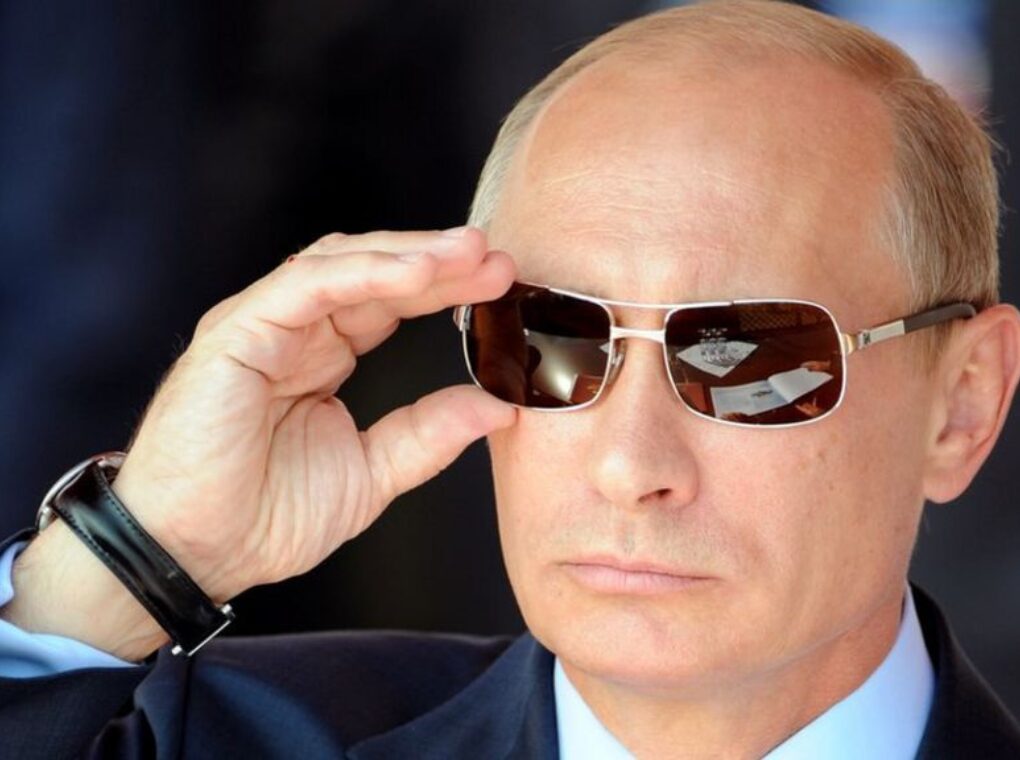Russian President Vladimir Putin has again demonstrated his fondness for sarcasm and political theatre, this time mocking Europe’s alarm over drone sightings linked to Moscow.
Speaking at the Valdai Discussion Club in Sochi, Putin responded flippantly when asked about reports of Russian drones flying near European airspace. His dismissive reply — “OK, I won’t do it again!” — was met with laughter in the hall but has left European officials increasingly uneasy.
The Exchange That Sparked Headlines
The exchange took place during a moderated session of the annual Valdai event, where Putin fields questions from both Russian and international academics, journalists, and policy experts. The moderator, clearly playing into the controversy, asked him:
“Why are you sending so many drones to Denmark?”
Without missing a beat, Putin smirked and replied:
“I won’t do it anymore. I won’t go to France, Denmark, or Copenhagen anymore. Where else do they fly?”
The remark, delivered in Putin’s characteristically dry tone, drew laughter from the audience. But behind the humor lies a serious matter that has dominated European security discussions for months: unexplained drone activity over NATO countries.
Drone Incidents Escalate
Europe’s concern has intensified following reports that three Germans were recently arrested in connection with a drone incident, highlighting the real-world consequences of the increased aerial surveillance and security tensions. Authorities have not disclosed full details, but the arrests underscore how seriously European nations are taking these incursions.
Countries including Denmark, France, and the Baltic states have reported mysterious drones flying near sensitive locations such as offshore wind farms, naval bases, and energy infrastructure.
Denmark: Unidentified drones have been spotted near strategic offshore facilities in the North Sea. Authorities warn that these flights could be probing NATO’s energy and defense vulnerabilities.
France: Similar sightings have been reported along the northern coast, sparking fears that Russia is conducting surveillance missions under the guise of “unidentified” drone flights.
Baltics: Already on edge from the ongoing Ukraine war, drone sightings are interpreted as deliberate attempts to intimidate smaller NATO allies.
Putin’s Use of Mockery
For Putin, sarcasm has long been a political tool. Whether mocking Western sanctions, ridiculing NATO expansion, or downplaying battlefield setbacks, the Russian leader often uses humor to belittle opponents while rallying domestic support.
By brushing off drone allegations with a flippant “I won’t do it again,” Putin accomplishes two things:
At home, he projects confidence, making light of what the West calls provocations.
Abroad, he undermines the seriousness of European concerns, framing them as exaggerated or even paranoid.
The Kremlin has consistently denied orchestrating drone flights over Europe, instead claiming that such reports are either fabrications or accidents. Yet, Western intelligence assessments suggest otherwise, pointing to Russia’s use of reconnaissance drones and electronic warfare tactics.
Strategic Implications
The drone incidents carry serious strategic implications. Experts point to several possible motives for Moscow if the drones are indeed Russian:
Testing NATO’s readiness: Drone flights can reveal how quickly European militaries respond to unidentified airspace violations.
Surveillance: Drones may gather intelligence on critical infrastructure such as ports, naval bases, and energy grids.
Psychological pressure: Repeated sightings increase public anxiety and remind European citizens of their vulnerability.
Hybrid warfare tactics: Russia has long blended military, cyber, and disinformation strategies to create instability without triggering a conventional military response.
Meanwhile, the arrests of the three Germans highlight that Europe is taking practical measures to prevent such threats, signaling that authorities are willing to act decisively even amid uncertainty about the origin of these drones.
Europe’s Response
NATO has pledged to enhance aerial monitoring across Europe. Denmark and France have urged allies to treat drone incursions with the same seriousness as cyberattacks or other hybrid threats. The Baltic states have pressed for stronger NATO deployments to deter further provocations.
European leaders face a delicate balancing act: acknowledging the threat without overreacting to what could be deliberate Russian attempts to provoke fear and disunity.
Putin’s mocking dismissal of drone concerns may have earned him laughter at home, but in Europe, it underscores rising unease. His sarcastic “I won’t do it again” is not seen as a harmless joke, but as a calculated reminder of Moscow’s ability to unsettle its neighbors with hybrid tactics.
The recent arrest of three Germans connected to drone activity further demonstrates the tangible consequences of this escalating tension. For Putin, humor is a weapon; for Europe, the joke is anything but funny.
